Home Security Systems: Your Options for 2025
What we've learned from more than 1,000 hours of research...

SafeHome.org may receive compensation from some providers listed on this page. Learn More
We may receive compensation from some providers listed on this page. Learn More
What we've learned from more than 1,000 hours of research...


We live in a dangerous world. Even in your own home, you can’t be 100 percent certain you’re safe. The FBI reports nearly one million burglaries every year.1 And that doesn’t include any burglaries that go unreported.
What do you do to minimize the chance that you’re one of them? You invest in a home security system. Here’s the thing: there are dozens of reliable home security companies out there offering great products. How do you choose between them?
That’s where we come in. We spend every day putting together review pages and pricing guides for every system we test and then find the best ones for every use case. We do all of that to help you choose the right system for you and your family. In this guide, we’ll go through everything you need to consider.
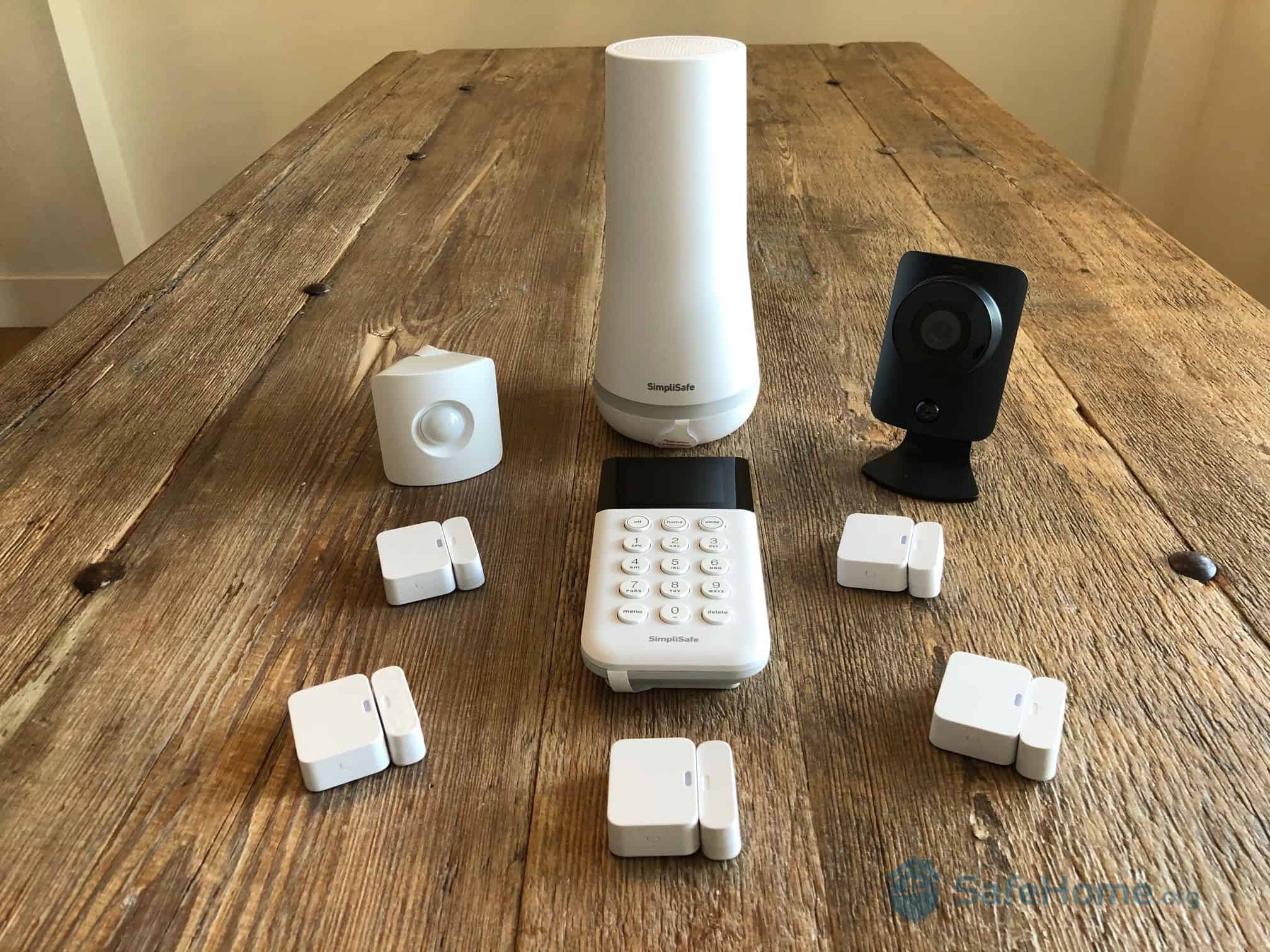
SimpliSafe Equipment
Why should you take advice from us?
We’ve spent countless hours testing security systems in our home. Each time we install a new system, we spend at least two weeks with it to see how it works with our day-to-day life. We also run it through a gamut of tests including simulated break-ins to see how it would respond in a real emergency. By the time we’re finished, we have a thorough list of all a system’s pros and cons.
In short, we’re the experts. We’re not stingy with our findings, though. We’re glad to share our process and findings with you to help you make a more informed decision. After all, home security is serious business, and the more you know the safer you’ll ultimately be.
But let’s not keep beating around the bush. Let’s get to it.
Are you in the market for a home security system? Please answer this survey to help us better understand consumer shopping habits. View Survey.


At the risk of starting too simply, just what is a home security system?
Probably the best definition we can give is that a home security system is a network of connected equipment – sensors, monitors, cameras – that work together to protect your home. All of a system’s devices are designed to let you know when there’s a problem – a fire, a flood, a break-in – so you can solve that problem, either yourself or by contacting emergency personnel.
What components make up a home security system, though? These are the most common pieces of equipment in a home security system:
We can go even further, though. Let’s break down each device based on its core function, how it works, key features and tech, and any available add-ons and integrations, all so you have a clear idea of what they do and how they keep you safe.

Vivint Door and Window Sensor

Cove Motion Detector
FYI: Some security cameras use a different type of motion detection called computer vision (CV). They detect movement by looking at changing pixels. That enables person detection algorithms and sometimes facial detection for more intelligent alerts.

Lorex cameras

Ring Video Doorbell 3

Vivint App Package Notification
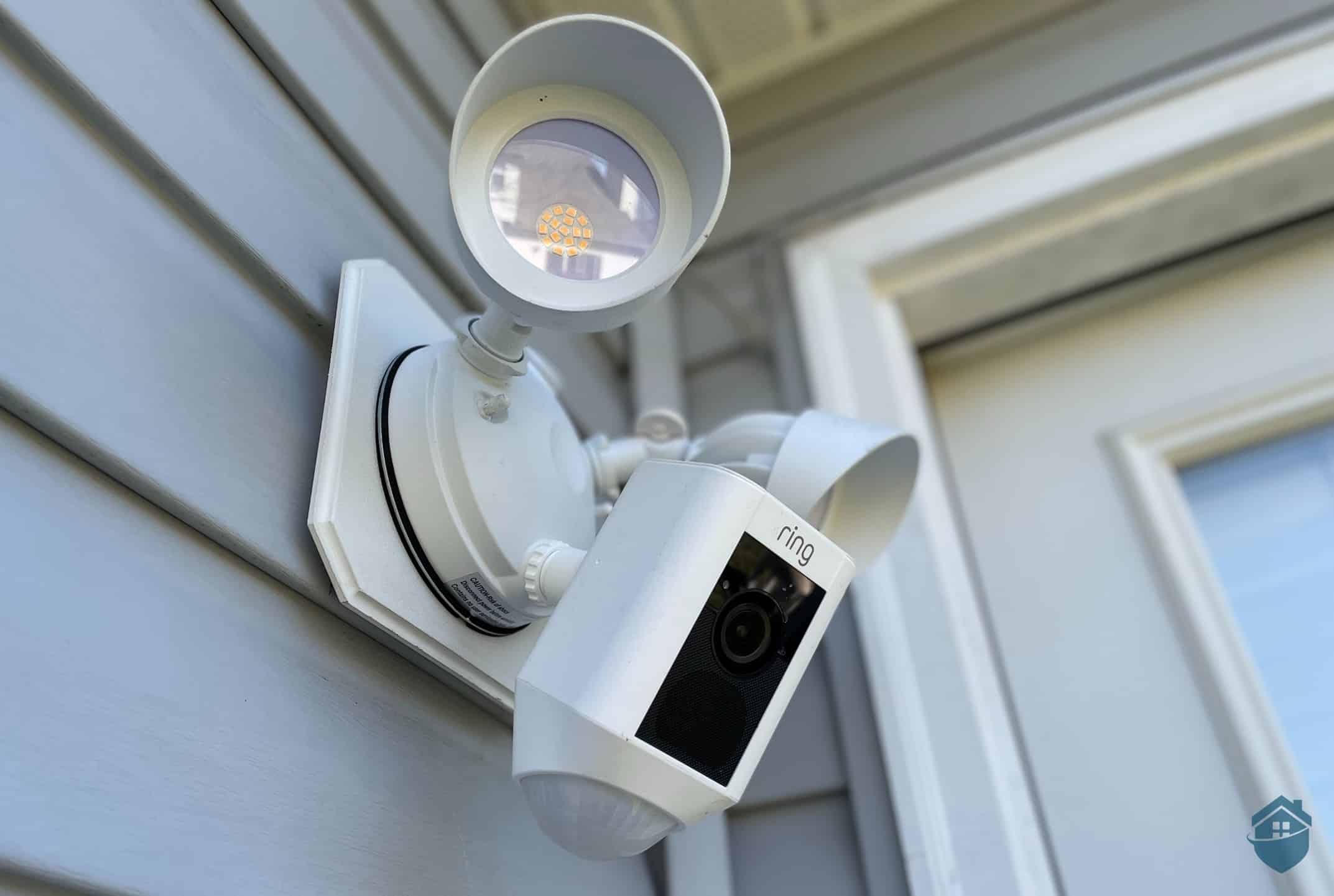
Ring Floodlight
Did You Know? Studies show that improved outdoor lighting can reduce criminal activity.2 While the research mostly revolves around street lighting for city safety, it can apply to your home too. And floodlights are a great way to illuminate your home’s entire outdoor area.

Vivint Smart Hub Settings
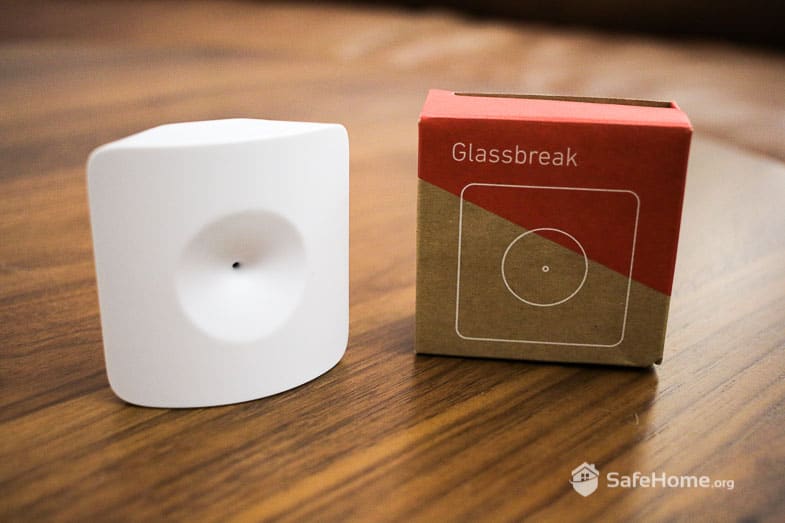
SimpliSafe – Glassbreak Detector
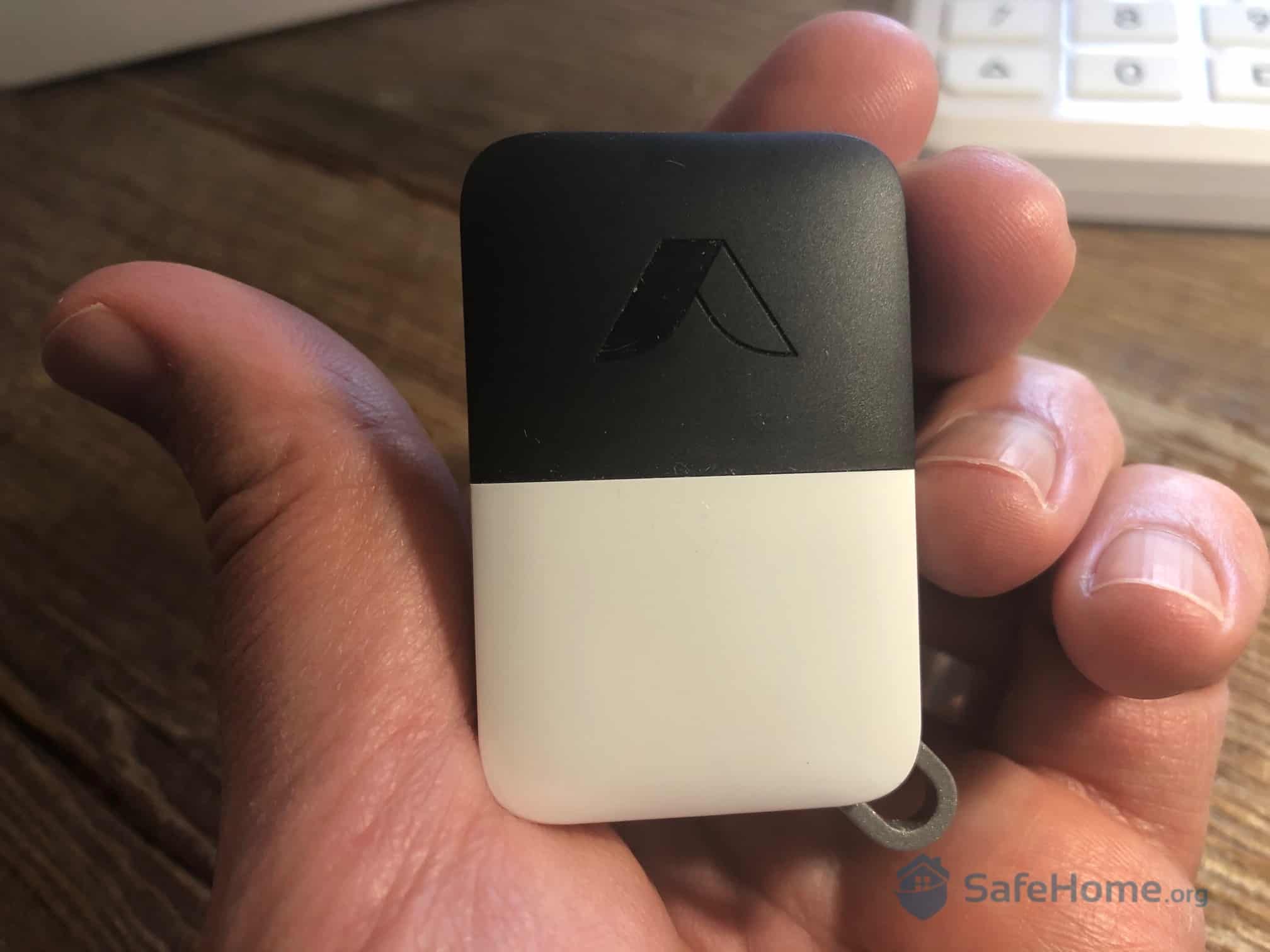
abode Key Fob

SimpliSafe – Smoke Detector
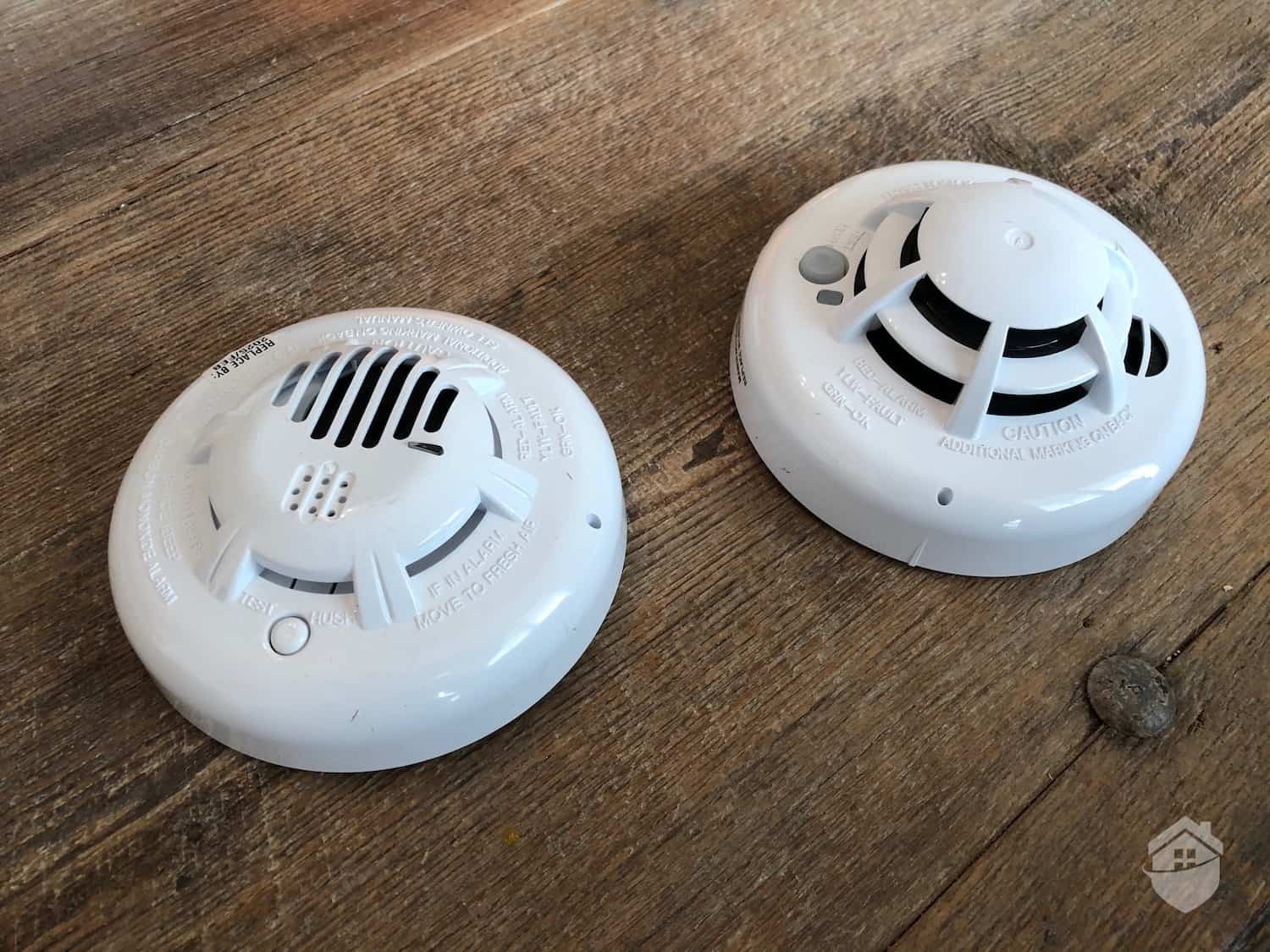
Vivint Smart CO/Smoke Detectors
In other words, a home security system is a network of electronic devices that protect and secure your home or apartment from criminal activity such as burglars, thieves, and home intruders.
Pro Tip: While an increasing number of companies are offering DIY installation, some still require professional installation. Keep in mind, though, having your system professionally installed will likely cost you north of $100.

Cove Installation Steps 1-2
So now you have a sense of the parts of a home security system. How do all of these parts work together to keep you safe?
The simplest – and most affordable home security systems rely exclusively on entry sensors. Any time someone opens a door or window, these sensors send a signal – usually to a central hub. The hub then sends you an alert. You might get a mobile alert, the hub might sound a chime, or opening a door might set off a full-alarm siren. At this point, you know what’s happening, and you now get to decide how to respond.
If you’ve signed up for professional monitoring, a monitoring station gets an alert too. Once monitoring personnel know there’s a security breach, they take necessary action. That usually begins with a call to the homeowner. In fact, some systems allow agents to talk to the homeowner directly through the system itself. If you’re not available, the next step is to contact emergency personnel and get them on site.
Beyond this basic setup, you can add all sorts of sensors, security cameras, and even specialized equipment like door locks and garage door openers.
Digging Deeper: Keep in mind that we’re always testing home security systems to see how they perform. To check out our results on the most responsive security companies, read our guide to home security company response times.
Security systems that don’t link to professional monitoring centers are referred to as non-monitored or self-monitored systems. As these names suggest, the task of monitoring and responding to alerts falls entirely on the shoulders of the homeowner. They have to be ready for alerts, they have to be willing to check the system and see what’s happening, and, if there is an emergency, they’re the ones who must call in emergency personnel.
Luckily, most self-monitored systems come with tools to help homeowners do this. At a minimum, they should provide real-time alerts. If they include cameras, you should have access to real-time footage. You should also have access to local storage or the option to purchase cloud storage to record footage.

Self-monitored security systems have gotten more popular year after year
Whether you self-monitor or rely on professionals, there is yet one more way security systems improve your safety. Simply having one can be an effective deterrent to anyone who might be thinking about breaking in. Video doorbells and outdoor cameras can alert would-be home invaders that you’re keeping a close watch on your property, but truthfully all you need to do this is put your security company’s sign in your yard. Even the idea of a security system scares most burglars. It’s another good reason to display signs and stickers where they’re obvious.
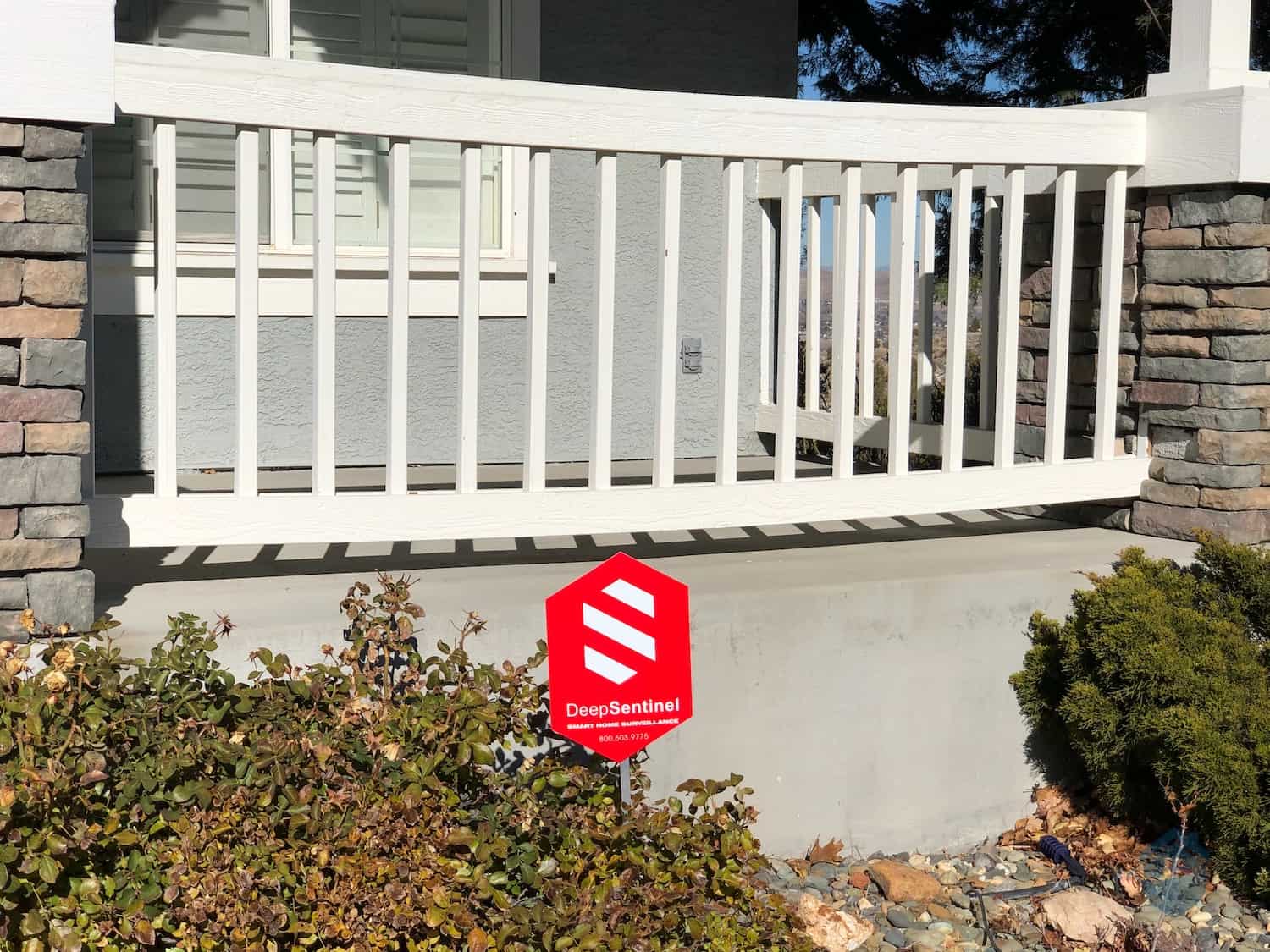
Deep Sentinel Yard Sign in our yard

How does your home measure up when it comes to security? Take this quiz to see how you score, and get recommendations to protect your home.

In a general sense, we all know that a home security system protects us. It’s right in the name. These are systems designed to make us more secure.
If you think about it in such broad terms, though, it’s easy to dismiss home security systems as some general need. The fact is, these systems protect you in specific ways, and when you put them all together, you get a sense of how vital they are not just to your security but to your safety. They’re an important key to a happy life.
The benefits of a home security system, though, are also concrete and tangible.
Police Officer Sent to Our House from Cove Monitoring
There’s really no question that you need a home security system. We live in a dangerous world, and you can’t simply take your safety on faith. The good news is that security systems have become increasingly affordable. DIY installation, self-monitoring options, and short-term contracts make the entire process easier than ever.
Of course, some homeowners benefit from a home security system more than others. People that need a home security system the most include:
The fact is, almost all of us can put a check beside one of the items on this list. We don’t all need state-of-the-art systems; we don’t all need tons of equipment; we don’t all need the latest technology to protect us. But with so many choices on the market, we can all find a system that will work for us.


Source: https://www.sdmmag.com/2019-SDM-100-Rankings
Note that some of the largest companies, such as ADT and Brinks Home Security, are not ranked because such detailed information was not publicly available or they did not report it to SDM. Companies that reported fewer than 1,000 residential subscribers are not included in this ranking.
Perhaps most interesting about our list above is the diversity of home security companies represented. Each company takes a different approach to home protection. Each company has a particular target demographic, a specific philosophy, value proposition, company culture, etc.
And while no company is a great fit for everyone, every company is a great fit for someone. So it just takes a little homework to find the company and system that’s right for you and your home.
The good news is, you don’t have to do that homework yourself. That’s what we’re here for. We spend all our time–more than a thousand hours a year, in fact—putting security systems through their paces. We find out what it takes to trip a SimpliSafe motion sensor, just how loud a Ring Chime is, and how much you’ll pay to add a camera to your ADT system. Then we condense it all and write it up in clear, easy-to-understand language so all you have to do is read through guides like this one.
We all have different budgets when it comes to home security. You may live on an enormous estate that needs dozens of entry sensors and a battery of home security cameras. We live in modest third-floor apartments where a single door sensor and a reliable video doorbell are enough to protect us. We all want to know we’re getting exactly what we need for our particular situation, though, and we all want to know we’re getting value for our money.
Different companies offer different pricing structures, and that means you’re certain to find a system that works with your own financial means. Some systems require almost no up-front costs, but you’re locked into a long-term contract. Others require you to pay for all your equipment in the beginning, but then you never have to pay another dime. There are companies that install your system, companies that let you save money by monitoring your own security, and companies that give you perks like free recording options.
We’ll get into how you sort all that out and even provide you with a handy comparison chart. First, though, a word on some purchasing dangers you want to avoid.
Pro Tip: Home security systems are great, but to get true peace of mind at home, don’t forget to keep a list of resources handy in case you need immediate help or are concerned about your family’s safety.
First, as all of this information suggests, there are a number of components to the price of a home security system. Make sure you’re informed about all of the costs before you invest – equipment costs, monitoring costs, installation costs, and any hidden costs like setup fees.
Beware of the phrase “as low as.” Home security companies love this phrase. It means they have systems that are that cheap. The cheaper packages may not have the components you need, though, or enough components to satisfy anyone, really. Start by deciding what system components you need, dig into websites to find out what those components cost, and then carefully compare systems.
Finally, some good news: sales are common in the home security market. The standard price is usually well above what you’ll pay, especially when it comes to equipment. You can find seasonal discounts from almost every company for holidays from Black Friday and Cyber Monday to the Fourth of July. A number of companies, though, seem to always be running some sort of sale. It’s rare to find SimpliSafe equipment listed at less than 50 percent off.
On the other hand, monitoring fees are typically less flexible. If a company tells you professional monitoring costs a certain price or they list the cost of video storage on their website, you can be pretty sure those are the prices and costs you’ll pay. The same is true of any extra fees like installation, activation, and equipment fees, as well as taxes and other surcharges.
 Installation Fee
Installation Fee Equipment Fees
Equipment Fees Monitoring Fees
Monitoring Fees Miscellaneous (ie taxes, surcharges, etc.)
Miscellaneous (ie taxes, surcharges, etc.)You’ll want to compare the upfront costs to the long-term costs of each security system. You might find your $20 a month advertised bargain monitoring contract ending up costing you, say, $45 a month after you add on all the fees and other charges.
Look at the overall costs of the different systems and options, add it up, and compare the costs between the various security companies you’re considering. You might be surprised at what you find. For instance, a company advertising “free installation and activation” may have a high monthly fee, making it more expensive than a system that does charge an installation fee but waives the monthly fee.
Did You Know? Home security companies are well-known for running massive sales. If you’re looking to get a deal on a home security system, always keep an eye out on and around major holidays and sales events like Black Friday and Memorial Day.
One more thing to consider: do you prefer to save money up-front or long-term? A few home security providers rent equipment rather than sell it to you outright. Some home security providers rent out equipment rather than sell it outright. This is great if you’re looking to get a fully-equipped home security system now with minimal investment. However, it means your equipment fees are figured into your monthly monitoring fees, and those can be steep. Plus, you typically can’t take your equipment with you when you move.
On the other hand, buying equipment up front can be costly, and in some cases, could end up costing you more than if you had rented the equipment and paid a higher monthly fee. Here’s the point: Look at the overall costs, do the simple math, average out the numbers, and find the best deal. You’ll be glad you did.
Here’s a side-by-side cost comparison of some of the best home security systems:
| Home Security Costs | Frontpoint | Vivint | ADT | SimpliSafe |
|---|---|---|---|---|
| Installation Cost | $0 | Starts at $49.99 | Starts at $0 | $0 |
| Activation Cost | $0 | $0 | Starts at $25 | $0 |
| Equipment Cost | Starts at $99 | Starts at $549.99 | Starts at $194.98 | Starts at $249.96 |
| Monthly Monitoring Price | $49.99 | $39.99 – $49.99 | $24.99 – $44.99 | $0 – $79.99 |
Did you notice the pricing comparison chart (above) lists the four different cost breakdowns? Now notice how none of these companies charges only a monthly monitoring fee. They each have other costs to factor in – from installation and activation costs, to equipment costs. This is typical of most home security companies. So keep it in mind while shopping around to find the best value on home protection.


Now consider your personal living situation. Do you own your home, or are you renting? This matters greatly, as it will influence the type of system you choose and the money you will spend.
When you own a home, you have different factors to consider when choosing a security system. Homeowners typically stay in place for longer than renters, so they often choose a system with longevity in mind. This allows them to spread the costs over a longer period of time. Also, homeowners can make major changes or modifications to their home, so this might influence their decision.

SimpliSafe Base Station Closeup
Renters, on the other hand, may need to seek a landlord’s permission to make changes to the home. They may also be hesitant about spending a lot of money to purchase a system they may not be able to take with them when they move.
Also, there are contracts to consider. A renter must be careful not to lock themselves into a contract they might not be able to get out of. If you rent, consider contract lengths for rental or purchase/rental options that allow you to keep the system and take it with you when you move.
Now, this isn’t to say that home security options for renters are thin pickings. Quite the contrary – more and more companies are offering fantastic security systems for renters at affordable prices.
FYI: Thinking of taking your home on the road? Learn about some easy security options for recreational vehicles in our thorough buyers guide to RV security systems.
If you’re renting your home, you should consider paying for your home security equipment up front. That’s a bit counterintuitive, but security companies that rent equipment typically require professional installation. They want to make absolutely certain that their equipment is properly installed and properly maintained.
Right away, you can spot the problem. Most renters are looking to save money and want to avoid extra charges like professional installation fees. Most of these companies are looking to protect their investment, and so they may require you to sign up for a long-term contract. Moving usually isn’t a part of the deal, so if you move you may wind up paying even more fees for the company to take down and reinstall your system.
DIY systems usually require you to purchase your equipment up-front, but from the moment it arrives, it’s yours. Installation is almost always peel and stick, making it easy to install it yourself and easy to take it with you when you move.
Of course, if you own your home, and are planning to stay awhile, you may want to choose a more permanent solution with a lower upfront cost but longer contractual obligations. If you’re renting (or are a homeowner but plan to move in the near future) consider going with a company that has a higher upfront cost, but that gives you ownership of the equipment. This way, you’ll see lower monthly costs and the benefit of being able to take the equipment with you when you move.
Did You Know? Amazon is pretty generous on doling out home security systems deals and discounts on Prime Day. To find some great savings, head over to our rundown of The Best Amazon Prime Day Deals on Home Security Systems.
Another benefit of owning the security equipment is that you can source extra sensors (and other options) from commercial retailers, rather than having to buy direct from the company. Full service companies typically charge premium fees for their equipment. Looking elsewhere is yet another way to save money.
If you prefer to lease equipment rather than purchase, the upfront cost will definitely be lower, but in reality you’re still paying for that equipment over time, most likely in your monthly service fees. So again, consider the overall cost. Additionally, if you want extra sensors or fancy options or add-ons, the cost of that monthly subscription may rise.
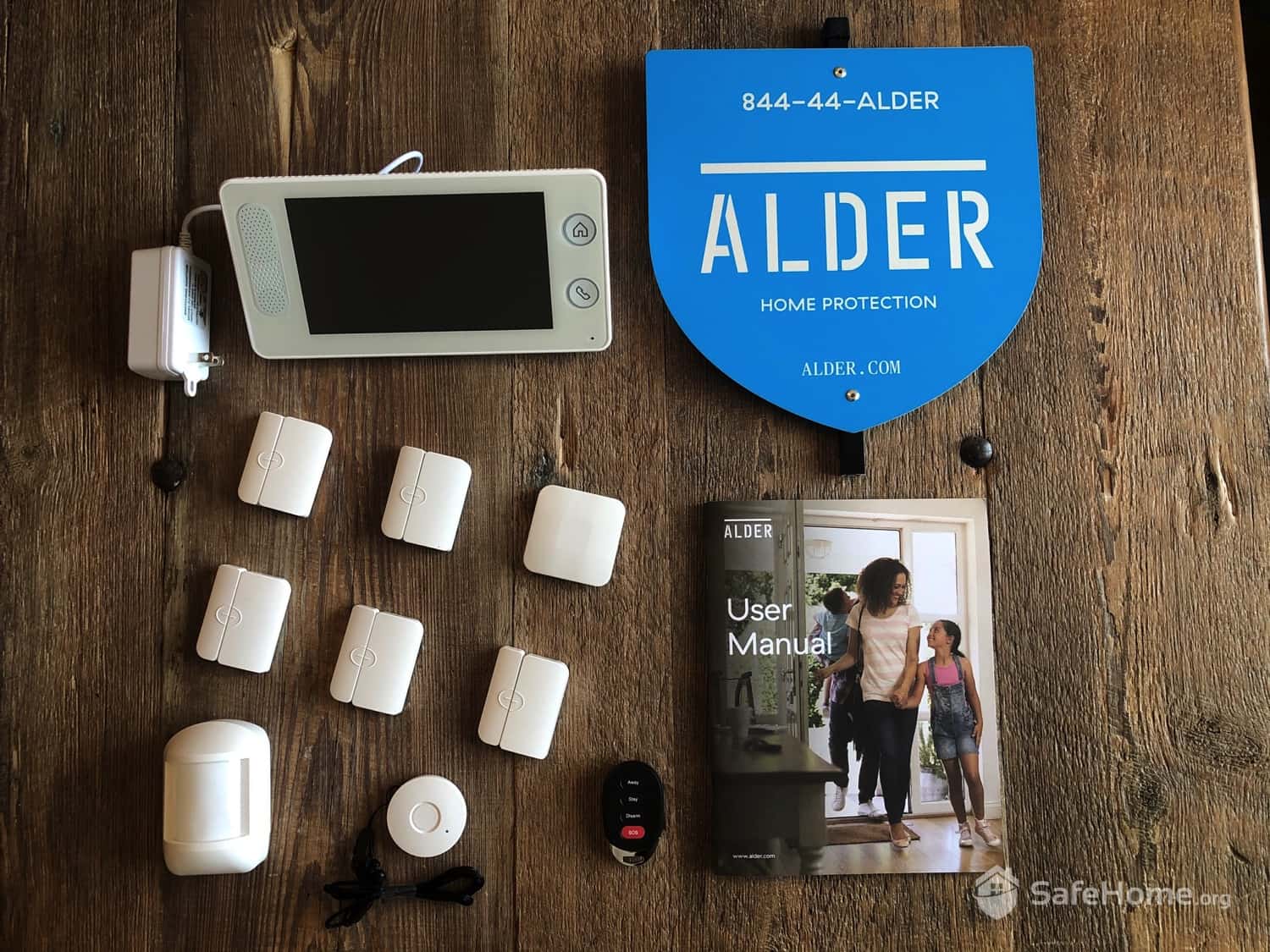
Alder Security Equipment
Or… you may simply be told that you cannot get the options you want. Sometimes the company won’t have what you’re looking for, doesn’t offer it to customers in your area, or has compatibility issues that were not considered. You’ll want to think about the scalability of the system you sign up for, especially if you want to upgrade or make changes to your system down the line.
You’d think any home security system would work with any home. Not so much. The wrong system can actually create new problems. You always need a system that’s going to suit your particular needs. For example, overly sensitive motion detectors aren’t going to work on a street with busy sidewalk traffic. If you wind up with alerts every five minutes, eventually you’re going to stop paying attention, and that puts your security at risk.
Connectivity is another key issue when it comes to system compatibility. Not every approach to connection is going to work in every area. There are basically three options:
Different companies offer different connections. Which one you need will depend on your particular situation.
Today, most modern security systems rely on broadband, which means they need a Wi-Fi connection to function properly. Wi-Fi is best for home automation systems. Although the availability of broadband connectivity has dramatically increased in recent years, not every house has this type of connection, especially in rural areas. Or, such areas may have broadband connectivity, but poor or unreliable coverage due to the location. Obviously, this presents a problem, as you need a security system that offers reliable 24-hour service for peace of mind.
If broadband or Wi-Fi is an issue, you may want to consider a security system that utilizes a landline. Landline monitoring is the least expensive option, but it’s not always the most secure. If a criminal wants access to your home, they could easily cut the wires and disable the entire system. While this is always a possibility (and therefore a concern), it’s actually not too common.
Cellular is least susceptible when it comes to tampering, but it also tends to be the most expensive of the connectivity options. If you do go with cellular, you must ensure your area has good cellular coverage. If it doesn’t, you won’t be able to reliably access your security system remotely to check on alerts or to view security camera live-feeds.
You also need good coverage so that your security equipment can communicate with the monitoring station and work with compatible devices and sensors. Think of it in the same way your computer wirelessly connects to your printer and interacts over the same network. If you have a security system with remote sensors and a smartphone app, all of this technology needs to properly interact in order to make your system truly safe and secure.

Closeup of Deep Sentinel Camera, mounted Outside
Our homes also differ in terms of intelligence. Whether you have a brilliant smart home now, or you have plans to make yours smarter in the near future, it’s important to consider whether the home security system you purchase is going to play well with it. In our increasingly connected world, it’s not always a given that devices will work with specific platforms. When you start thinking about smart devices like toasters, refrigerators, and televisions, it can get even more confusing. Good home security systems are compatible with all the top smart platforms, including Alexa, Google Home, and Apple HomeKit.
You’re particularly savvy, though, so you’ll also want to consider what kind of contol your system provides through your smart platform. Will you be able to unlock your door remotely using your phone, control the AC and turn on your lights with just your voice?

Person Detection on the Vivint Smart Hub
You’ll find that some equipment is compatible with almost everything, while other equipment is only compatible with specific systems or devices from the same company/brand. For instance, you may find it hard to search for a security system that works with smart thermostats from Google Nest, even though they’re some of the most popular smart thermostats today. That’s because the Nest Thermostat doesn’t support Z-Wave, which is what most security systems use today for inter-brand communication.
Additionally, getting each and every device to communicate properly, and to maintain this functionality, can be frustrating and difficult. However, the more compatible a security system is with other smart technology in the home, the fewer problems you’ll have with the system and its components.
So be sure to look into the platforms that your system works with.
Solid, reliable equipment is the foundation of any good home security system. The right system features, though, can improve your safety and make your life more convenient. Trouble is, features can sometimes be the shiny gewgaw that companies use to draw customers in. So, while you definitely want to consider what features a system includes, you want to do that with a discerning eye.
First, make sure you understand a system’s features and what the company is really offering to do for you. Do you really understand what Geofencing means? If not, how can you be sure it’ll improve your security?
Don’t sacrifice security for convenience. A system that can turn on your robovac is cool and all, but not if it takes five minutes to send you an alert when a monitor is triggered.
Think through what’s actually going to be useful in your home. Don’t sign up for a system just because it’s the most technologically advanced. Will you be able to make maximum use of all that technology?
And finally, remember to weigh features with costs. You’re never going to get something for nothing, and you certainly don’t want to wind up with a home security system that you can’t afford.
Let’s take a look at some of the most common features available from a few of the top-rated security companies:
| Home Security Features | Frontpoint | Vivint | ADT | SimpliSafe |
|---|---|---|---|---|
| Installation Type | DIY | Professional | Professional | DIY |
| No-Contract Option | No | No | No | Yes |
| Home Automation | Yes | Yes | Yes | No |
| Mobile App | Yes | Yes | Yes | Yes |
| Customer Support Score | 5-stars | 3.5-stars | 3-stars | 4-stars |
Now, here are the most common options and features to look for when shopping for a security system:
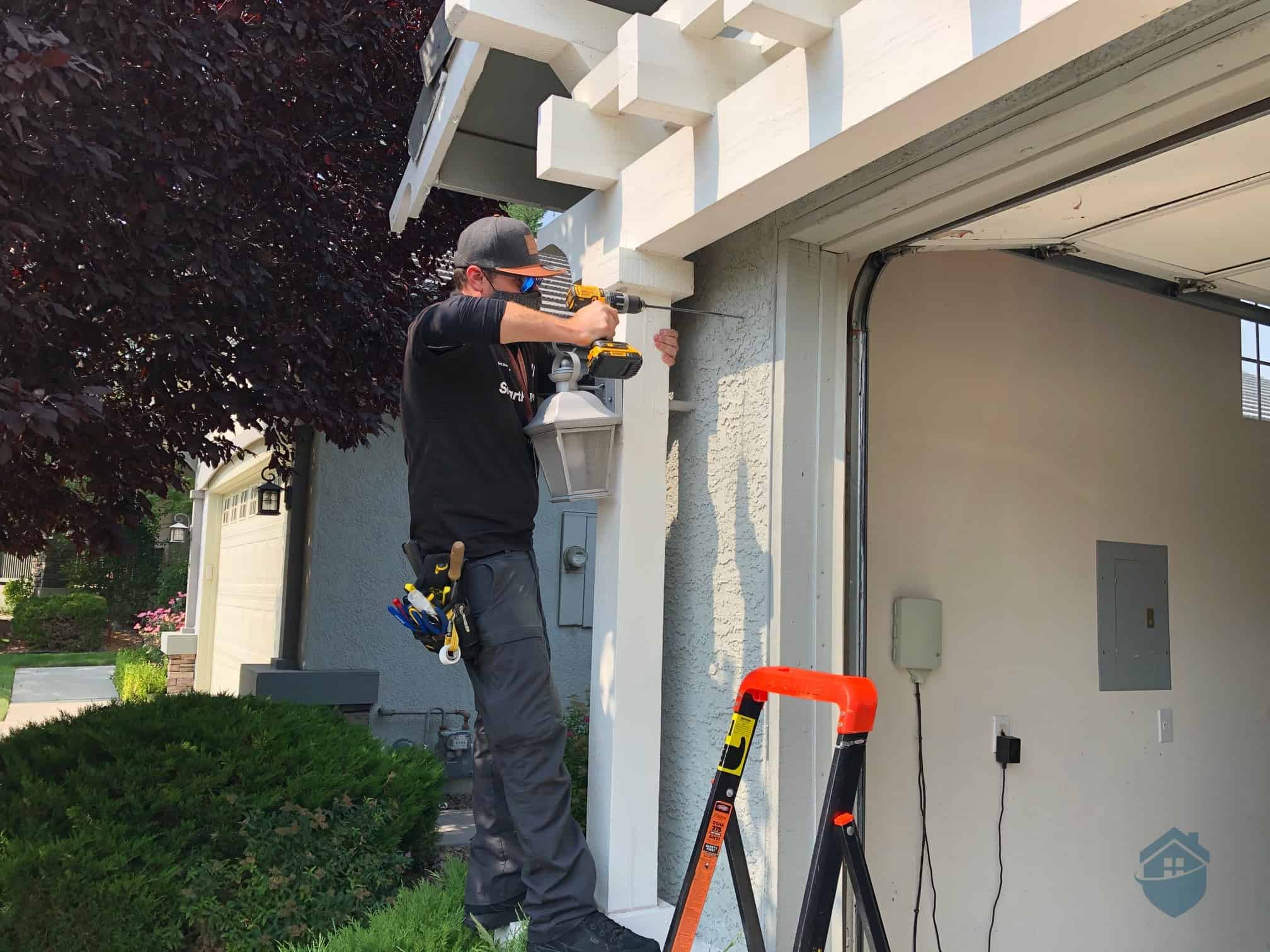
Installing Vivint Outdoor Camera Pro
Most home security companies at least offer DIY installation these days. Some don’t offer anything else. Normally, that means installation is pretty straightforward, and most homeowners have what it takes to handle setup on their own. There are still a few companies out there, though, that require professional installation. And let’s face it, we all like to put our feet up every now and then and let someone else do the heavy lifting. Even home security experts like us occasionally let the company handle the process.
Ultimately, both types of installation have their pluses and minuses. Let’s dig in and see what those are.
What does professional installation mean? It means letting someone else take care of the entire installation process. The best companies talk with you about your home security needs before you even purchase any equipment. They show up and install everything – professionally. That means everything connects the way it should, and there are no dangling wires once it’s all over with. Then the techs spend a little time explaining your system to you so that before they leave, you’re an expert in how to use it. Sounds pretty good, right? Sure, but as with anything else, there are pros and cons to having your system installed this way.
The Pros

Don, our Smart Home Professional from Vivint
The Cons
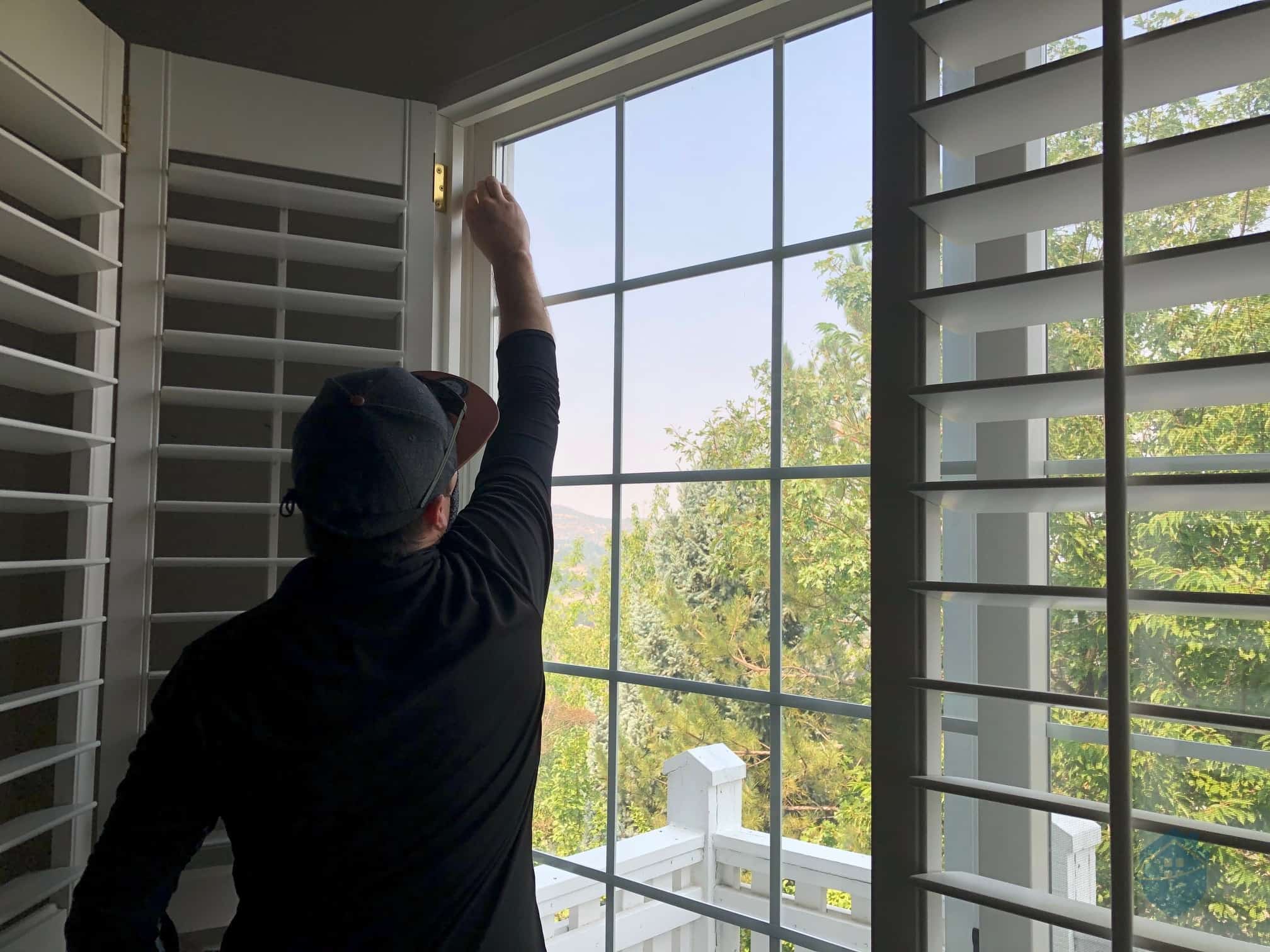
Don, our Vivint technician, installing the Vivint Window Sensor
DIY stands for do-it-yourself, but you already know that. After all, you like to figure things out for yourself. When it comes to home security, DIY means DIY installation. You could ask someone to install your system – maybe the company you bought your system from – but you’d rather have control of it and skip the installation fee. Of course, as with professional installation, there are pros and cons to talking the job yourself.
The Pros

Installing the Reolink Argus 3
The Cons
We hate to even bring it up, but these days it’s a fact of life – you just can’t trust every company out there, even home security companies. Especially home security companies. Invest in the wrong security system and, at best, you may wind up overcharged. At worst, the company that’s supposed to be protecting your family could be out there selling your information to the highest bidder. Like it or not, no matter how good a system may seem, you should never sign on the dotted line until you’ve vetted the company.
What are you looking for, though?

Deep Sentinel Equipment
Don’t have the problem to research twenty or thirty home security companies yourself? No problem. One advantage to the digital age is that absolutely everyone has an opinion on everything. It’s pretty easy to find company reviews from both experts and actual users.
The best reviews offer pros and cons, ups and downs – pretty much everything you need to know before you pull out your wallet. It’s entirely possible (and encouraged) to fully understand each system you have your eye on – the features and tech, the contracts, warranties, everything.
We live in the digital age, though, so you can’t exactly trust every piece of information you come across. Here are a few tips to help you decide whether or not you can trust a review.
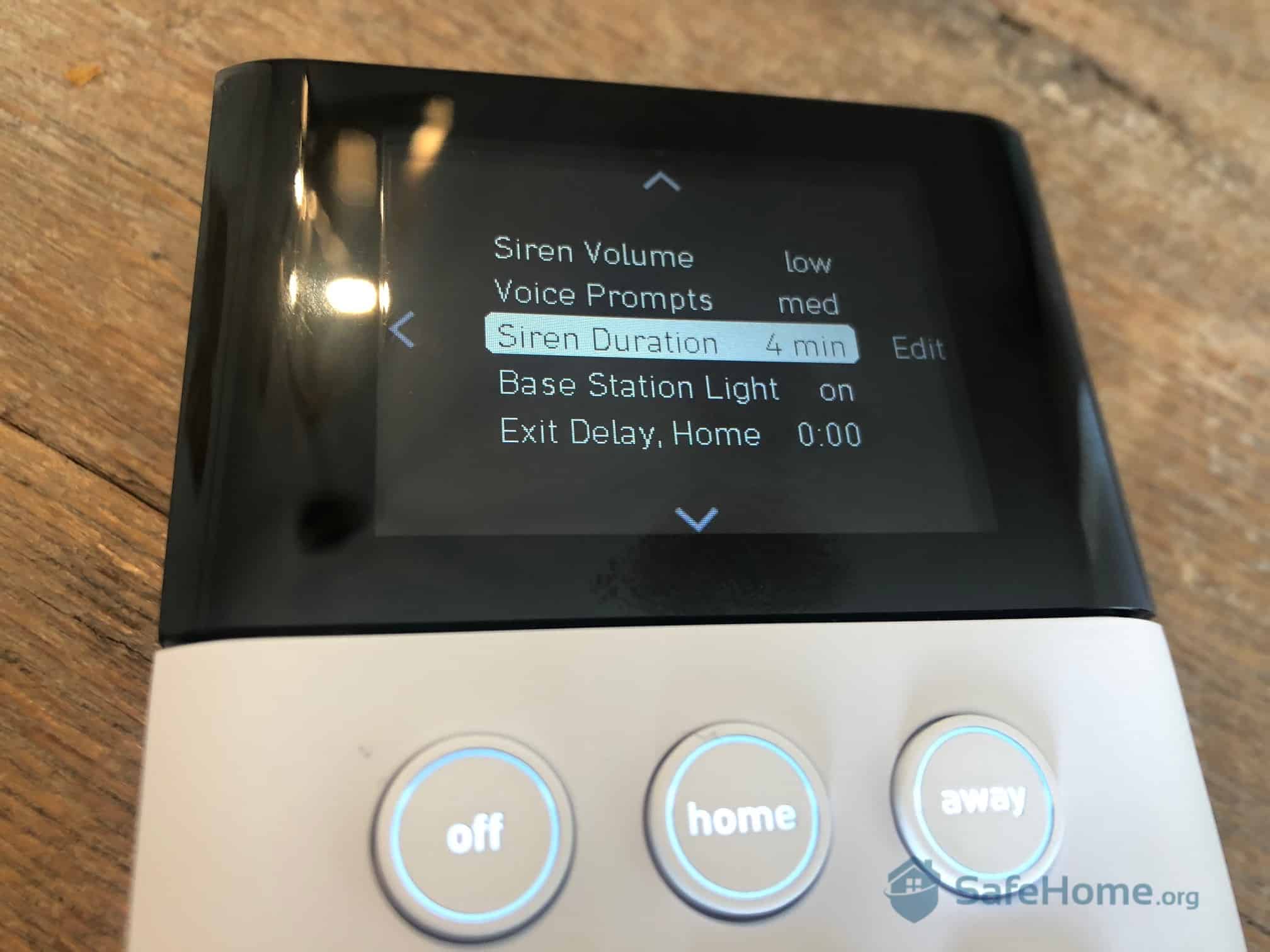
SimpliSafe Wireless Keypad Menu Options
Look – if choosing a home security system doesn’t seem at least a little intimidating, you’re not doing it right. You’re looking for a set of equipment and a monitoring plan that are going to keep you, your family, and your most precious possession safe. You can’t just grab the first system you come across. You ought to be at least a little anxious about getting it right.
You need a system that suits your particular needs – your home security needs, your technology needs, your budget needs. Luckily, there are dozens of great security systems out there with every kind of feature you can imagine. Want to connect your security cameras to your front door locks? There’s a company out there that can do that. Want to know your home is absolutely secure without breaking the bank? There’s a company that can do that.
You’re not alone in your search, though. We’re here, and we’ll keep posting new guides about new equipment and updating our old guides with the newest information. In the end, we can’t make your decision for you, but hopefully we can provide you with enough tools to make the right decision for yourself.
Yes, a home security system absolutely makes your home safer. It monitors entry points so you know every time someone enters or leaves your house. They can also connect to professional monitoring services, which means a professional contacts you and emergency personnel if needed anytime your system identifies an event.
No, some of our favorite home security systems do not require a monthly fee. If you’re looking to avoid monthly fees, we recommend getting a security system through SimpliSafe, abode, or Ring, all of which offer self-monitoring options.
In our opinion, ADT makes the best home security systems. They’ve been around for 150 years and that experience shows with every aspect of their system from their equipment to their professional monitoring service. They also offer cutting-edge features both for convenience and safety, like Trusted Neighbor. This feature leverages the facial recognition in ADT’s cameras to detect when a trusted person is approaching the house so ADT can unlock the door and disarm the system for them – useful in emergency situations like if there’s fire.
For an average-sized home, expect to pay anywhere from $150 to $750 for equipment depending on how advanced of a system you want. If you choose to opt for professional monitoring, that tends to cost between $30 and $50 per month.
In most cases, you can get a discount on your homeowner’s insurance if you buy a home security system. Most insurance companies will require that you invest in professional monitoring, but your discount can offset those costs.

FBI. (2025). Crime Data Explorer.
https://cde.ucr.cjis.gov/LATEST/webapp/#/pages/explorer/crime/crime-trend
Newark Public Safety Collaborative. (2024). Can Enhanced LED Street Lighting Contribute to Reduce Violent Crime?
https://newarkcollaborative.org/blog/can-street-lighting-reduce-crime